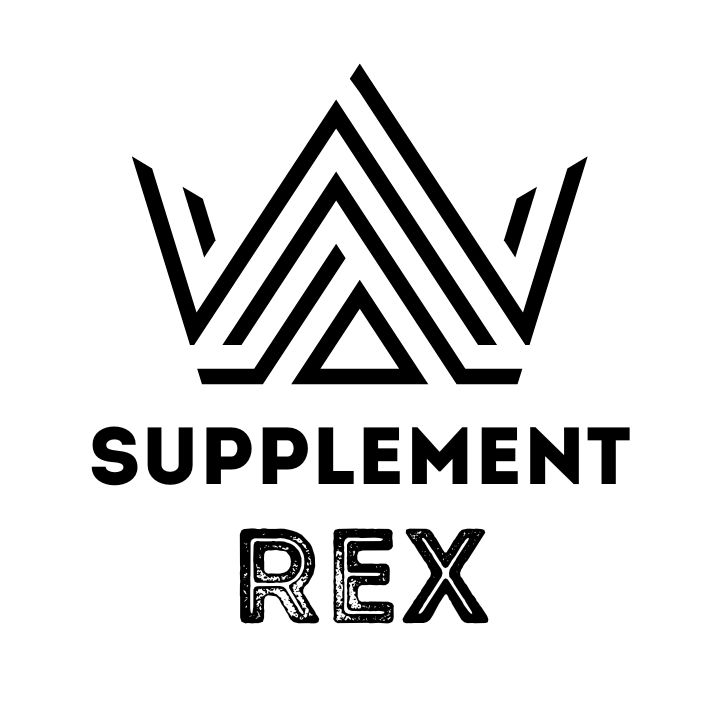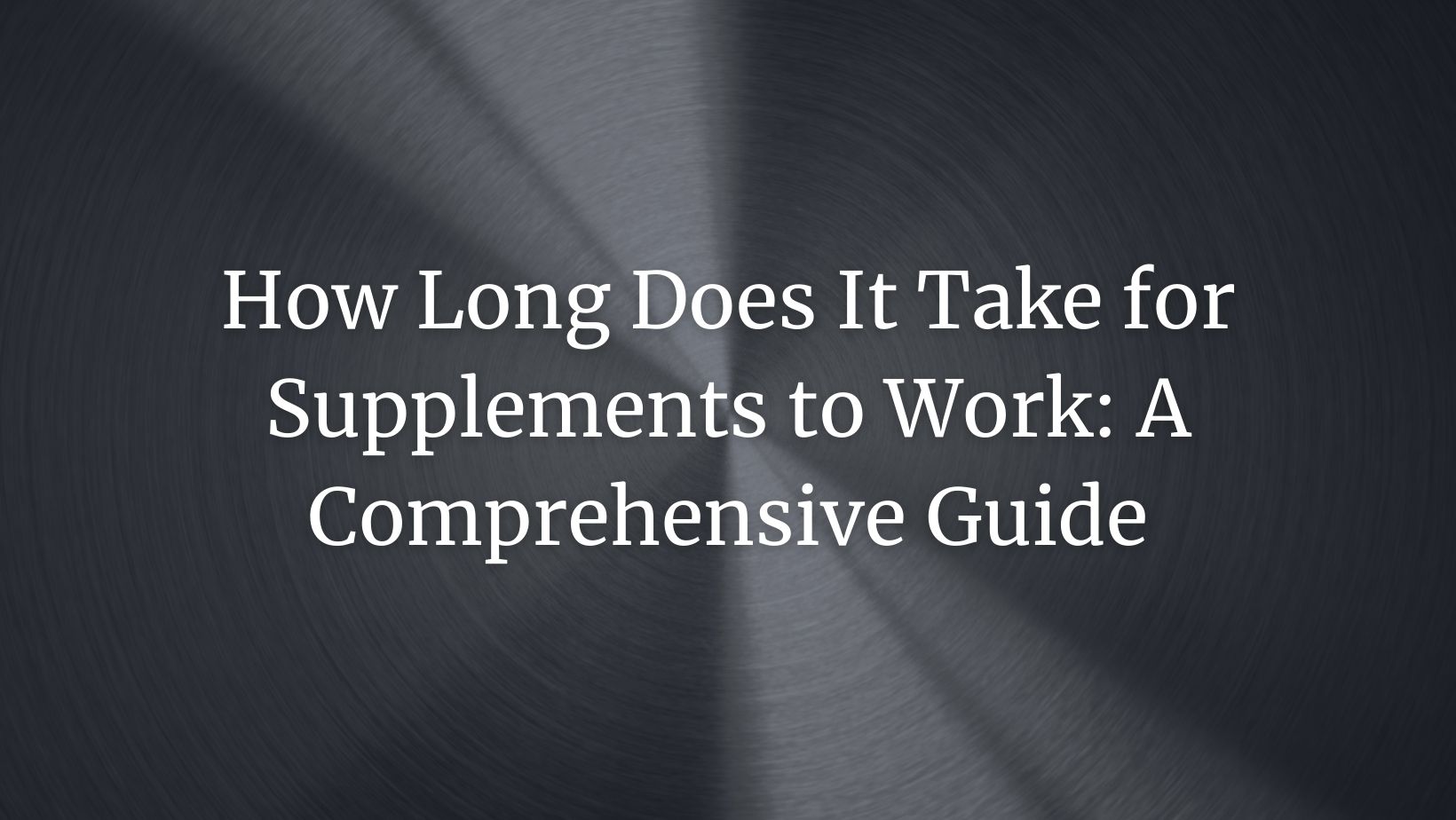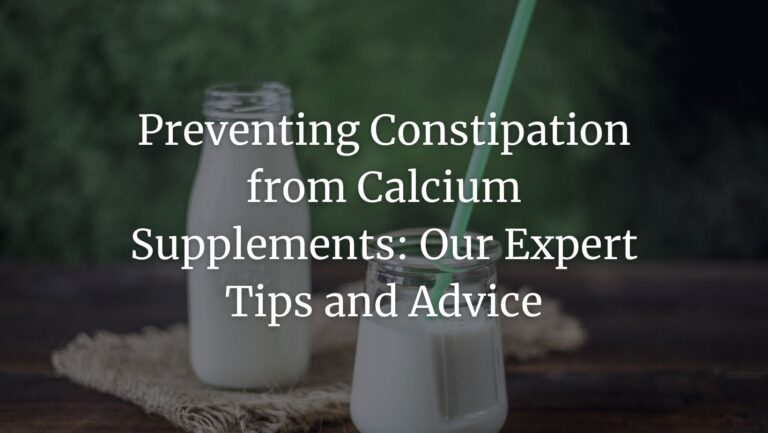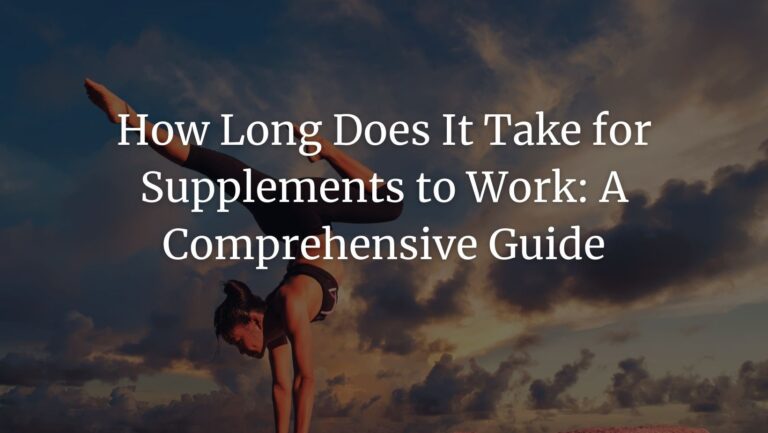How Long Does It Take for Iron Supplements to Work: A Comprehensive Guide
Iron deficiency is a common problem, especially among women and children. Iron supplements are often recommended to help increase the levels of iron in the body. However, people who take iron supplements may wonder how long it takes for the supplements to work.
There is no simple answer to this question, as the time it takes for iron supplements to work can vary depending on a variety of factors. In this article, we will discuss the factors that can affect how long it takes for iron supplements to work, and provide tips for optimizing the effectiveness of these supplements.
Factors That Affect How Long It Takes for Iron Supplements to Work


Iron deficiency can have a significant impact on overall health and well-being. Symptoms of iron deficiency can include fatigue, weakness, pale skin, and shortness of breath. If left untreated, severe iron deficiency can lead to anemia, a condition in which the body does not have enough red blood cells to carry oxygen to the body’s tissues.
Taking iron supplements can help increase iron levels in the body and alleviate symptoms of iron deficiency. However, it is important to remember that iron supplements are not a substitute for a healthy diet and lifestyle. Eating a balanced diet that includes iron-rich foods such as lean meats, leafy greens, and beans can help prevent iron deficiency and support overall health.
In addition to your lifestyle, there are multiple factors that can modify your iron levels. Here is what you can expect to have an impact on iron supplement effectiveness:
Severity of Iron Deficiency
The severity of iron deficiency is one of the most important factors that can affect how long it takes for iron supplements to work. If the deficiency is mild, it may take only a few weeks to see an improvement in iron levels. However, if the deficiency is severe, it may take several months for iron supplements to have a noticeable effect.
Type of Iron Supplement
There are several different types of iron supplements available, including ferrous sulfate, ferrous gluconate, and ferrous fumarate. These supplements have different levels of elemental iron, which can affect their effectiveness. Ferrous sulfate is the most commonly used type of iron supplement and is generally considered to be the most effective.
Dosage and Frequency of Iron Supplements
The dosage and frequency of iron supplements can also affect how long it takes for them to work. Higher doses of iron supplements may be needed for people with severe iron deficiency, while lower doses may be sufficient for those with mild deficiency.
Taking iron supplements on an empty stomach can help increase absorption, while taking them with food may decrease absorption. But, for some people the supplement itself can make them nauseous or irritate their stomach – if this is the case for you, try taking the pills with a little more water and perhaps a bite of something light like a banana.
You shouldn’t eat any calcium-containing foods like milk or cheese with your supplement – these will definitely decrease absorption.
Underlying Medical Conditions
Certain medical conditions can affect the absorption and utilization of iron in the body. People with diseases such as celiac disease, inflammatory bowel disease, or chronic kidney disease may require a dose modification of their iron supplements or may need to take them for a longer period of time to see results.
Other Medications or Supplements
Some medications and supplements can interfere with the absorption of iron supplements. For example, antacids, calcium supplements, and proton pump inhibitors can decrease the absorption of iron. People taking these medications may need to take iron supplements at a different time of day or may need to increase their dosage.
Tips for Optimizing the Effectiveness of Iron Supplements


So, is there anything you can do to improve your iron supplementation regimen? Yes – and here is a list of the most impactful tips for optimizing their effectiveness:
Take Iron Supplements as Directed
It is important to take iron supplements exactly as directed by a healthcare provider. Taking too much iron can be dangerous, especially for children.
Pair Iron Supplements with Vitamin C
Taking iron supplements with vitamin C can help increase absorption. Vitamin C helps convert iron into a form that is easier for the body to absorb.
Avoid Certain Foods and Beverages
Certain foods and beverages, such as dairy products, coffee, and tea, can decrease the absorption of iron. It is best to avoid these foods and beverages when taking iron supplements. Similarly, avoid calcium-containing supplements, as well as antacids and proton pump inhibitors.
Be Patient
Iron supplements can take time to work, especially if the iron deficiency is severe. It is important to be patient and continue taking the supplements as directed by a healthcare provider.
Conclusion
In conclusion, how long it takes for iron supplements to work can vary depending on a variety of factors, including the severity of iron deficiency, the type of iron supplement, the dosage and frequency of iron supplements, underlying medical conditions, and other medications or supplements. To optimize the effectiveness of iron supplements, it is important to take them as directed, pair them with vitamin C, avoid certain foods and beverages, and be patient.
If you are experiencing symptoms of iron deficiency or have concerns about your iron levels, it is important to talk to a healthcare provider. A healthcare provider can help determine the appropriate dosage and frequency of iron supplements and provide guidance on how to optimize their effectiveness.
References
- Camaschella C. Iron-Deficiency Anemia. N Engl J Med. 2015;373(5):485-486. doi:10.1056/NEJMc1507641
- Centers for Disease Control and Prevention. Recommendations to Prevent and Control Iron Deficiency in the United States.https://www.cdc.gov/mmwr/preview/mmwrhtml/00051880.htm
- National Institutes of Health. Iron. https://ods.od.nih.gov/factsheets/Iron-HealthProfessional/
- Short MW, Domagalski JE. Iron Deficiency Anemia: Evaluation and Management. Am Fam Physician. 2013;87(2):98-104.
- Tefferi A. Anemia in adults: A contemporary approach to diagnosis. Mayo Clin Proc. 2003;78(10):1274-1280. doi:10.4065/78.10.1274
- World Health Organization. Iron Deficiency Anemia: Assessment, Prevention, and Control.https://www.who.int/publications/m/item/iron-children-6to23–archived-iron-deficiency-anaemia-assessment-prevention-and-control
- Powers JM, Buchanan GR, Adix L, Zhang S, Gao A, McCavit TL. Effect of Low-Dose Ferrous Sulfate vs Iron Polysaccharide Complex on Hemoglobin Concentration in Young Children With Nutritional Iron-Deficiency Anemia: A Randomized Clinical Trial. JAMA. 2017 Jun 13;317(22):2297-2304. doi: 10.1001/jama.2017.6846. PMID: 28609534; PMCID: PMC5815003.





